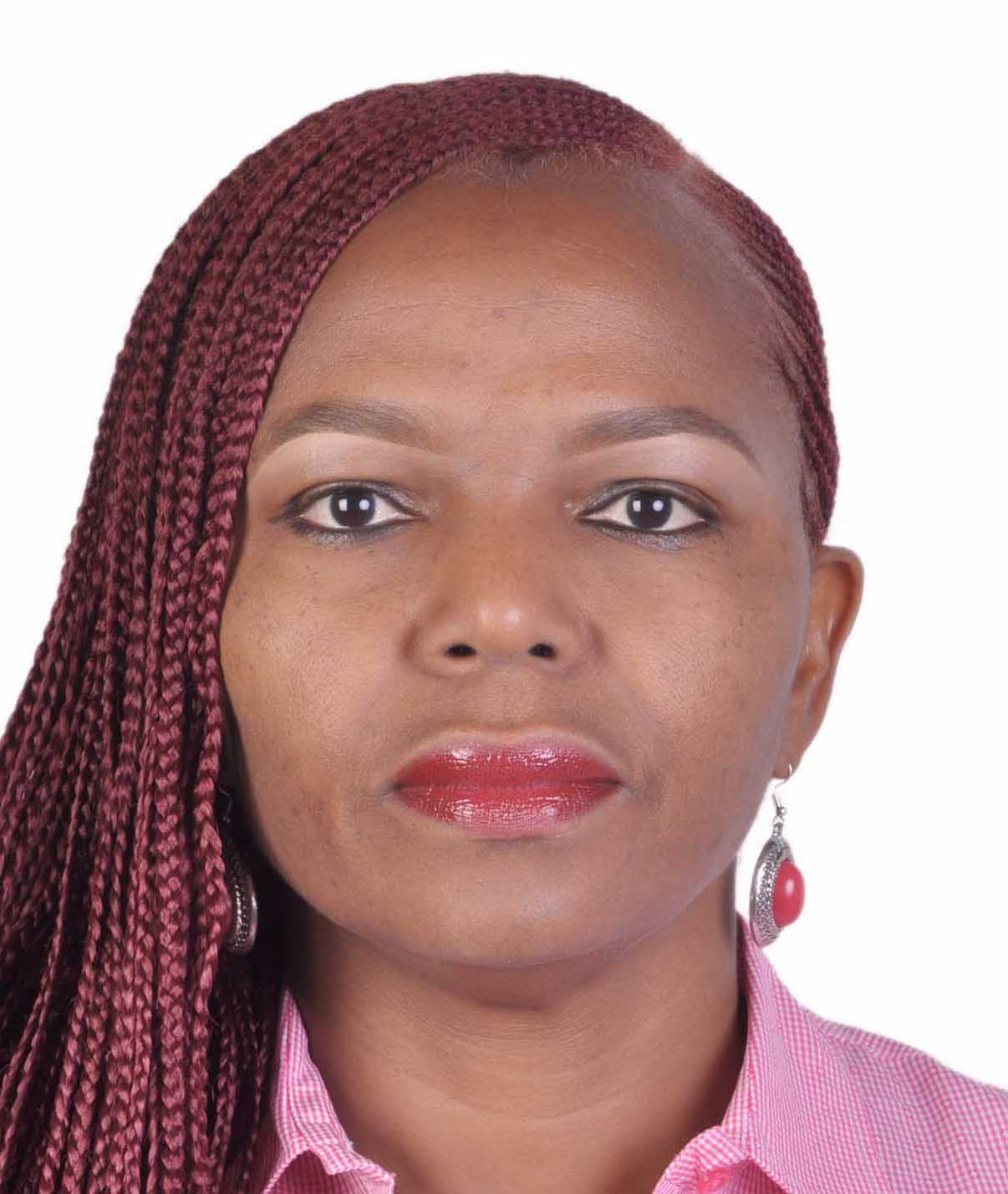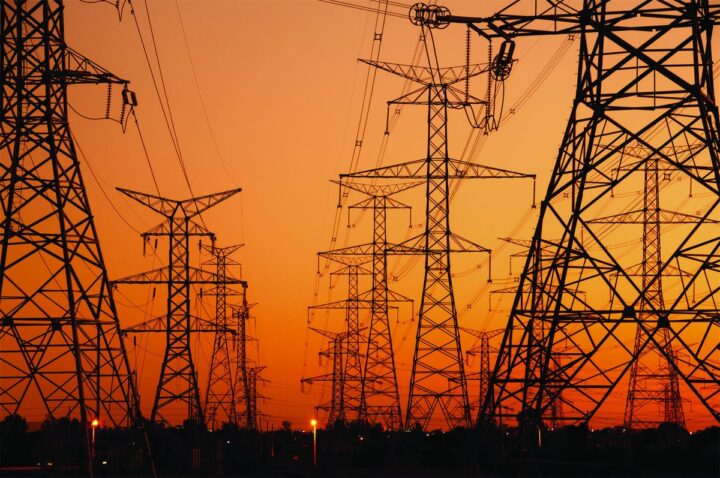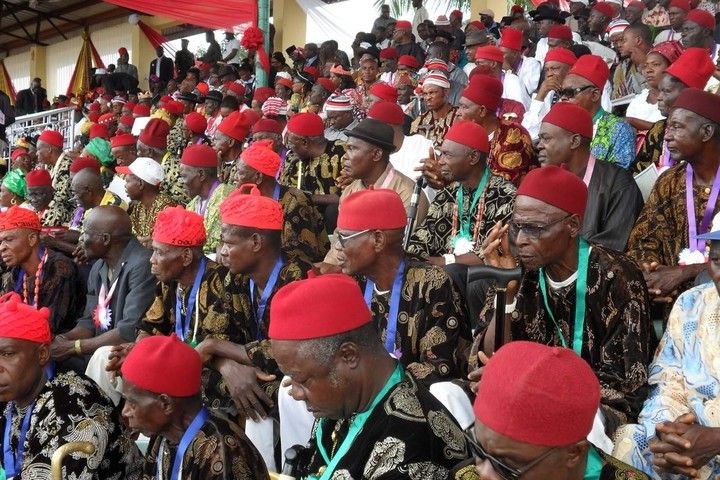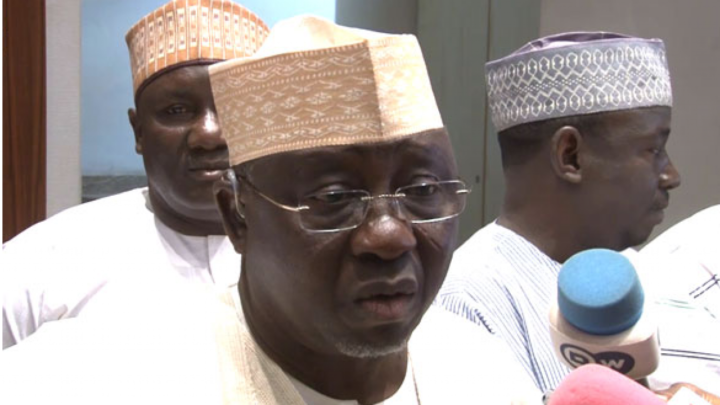Last week Wednesday, the microblogging site Twitter deleted some of Nigeria’s President Muhammadu Buhari’s tweets. In those sets of tweets, Buhari was purportedly warning young Igbos against the destruction of government property like police stations and offices of INEC, the electoral commission.
However, it appeared as if the warning was actually targeted at some people from the South-Eastern part of Nigeria calling for secession. In the now-deleted tweets, President Buhari said words to the effect: “Many of those misbehaving today are too young to be aware of the destruction and loss of lives that occurred during the Biafra war. Those of us in the fields for 30 months, who went through the war, will treat them in the language they understand.” President Buhari who fought on the Nigerian side was a brigade major during the Biafra war.
In the said Biafran “war” which some have called a genocide against Igbos, at least 2 million Igbos died in those 30 months. Most of the dead were children who died from starvation caused by the Nigerian government’s blockade of food and aid. After the war, the government, under the leadership of Gen. Yakubu Gowon, promised ‘Reconciliation, Reconstruction and Rehabilitation’ in the now infamous policy of 3Rs. However, either by omission or commission, the 3Rs policy failed spectacularly almost from inception. After the war, bank accounts owned by Igbos were seized and each person given 20 pounds regardless of how much they had. How reconciliatory or reconstructive was that? How was 20 pounds supposed to rehabilitate Igbo families? Fifty-one years after the end of the Biafra war, Igbos are still far from being totally rehabilitated. In fact, some would argue that they have never had it so bad especially in the last six years.
The foregoing introduction is not to open old wounds or indulge in a blame game but to give a background so you’ll understand the context in which President Buhari’s tweets can be interpreted. His threat of revisiting the Igbos with the violence from the Biafra war was pouring trailer loads of Dangote salt into yet-to-be-healed sores. It’s not that anyone needed those tweets to decode what the government thinks of the South-East anyhow. Yet, President Buhari’s now-deleted tweets made many commentators point out what they termed to be the glaring double standards in the way his government talks to different parts of the country. On one hand, the same government appeals to kidnappers, terrorists and so-called bandits (on Twitter) but threatens aggrieved people, even if some criminal elements use this to foment trouble. While these bandits and terrorists are being paid handsome ransoms, being given safe corridors and rehabilitated, the Nigerian security forces are waging a war on another part of the country.
Advertisement
So, how did the government respond to Twitter? As everyone now knows, the Nigerian government has suspended Twitter indefinitely. As usual, after the fact, some are bending over backwards trying to create a legal backing for the government’s pronouncement. The legislative arm of government under its current leadership (Senate president Ahmed Lawan and House of Reps speaker, Femi Gbajabiamila) is staying true to its form as a rubber stamp. The House of Reps has set up a committee to investigate the Twitter ban in ten days. Some lawyers have faulted this move saying their first order of business should’ve been to cancel the ban pending investigation because they as lawmakers are the only ones charged with the responsibility of making laws. Well, not even a yelp from the Senate.
Then, there are some people who cannot support the Twitter ban fast or loudly enough. All them ‘bellectuals’ (stomach intellectuals more concerned with being paid or currying favours from the government), and closet tyrants. One of such people is actor Yemi Solade. In an interview with Goldmyne TV, Solade had a lot to say. Let’s hear him out as I attempt to make sense and respond to his reasoning or the lack thereof.
Solade: “It (Buhari’s deleted tweet) is just an expression for all I care. Its something that is coming from everyones fundamental human right to express. Even at that, I will not subscribe to malicious posts and hate speech. Nobody thought Twitter was going to be banned. Everybody thought it was a huge joke.”
Advertisement
As I spent a good portion of my introduction explaining, Yemi Solade says President Buhari threatening young Igbos with genocide or something close is “just an expression” and his “fundamental human right to express.” He then follows that with: “Even at that, I will not subscribe to malicious posts and hate speech.” You see, this is one time that a simple ‘no comment’ would’ve sufficed. But whosai? Mr. Solade must pride himself as someone who can bob and weave, and someone who can dexterously straddle both sides of an argument. Ultimately, this isn’t very intelligent.
Solade: “I think Twitter went too far insulting the president of Nigeria and, by extension, all of us some 200 million people of Nigeria. I think about 45 percent of the subscribers more or less, Nigerians, make Twitter very thick (sic). This is not the first time Twitter will attempt to humiliate Nigerians. It happened to Pastor Chris Oyakhilome. I think the white supremacist and imperialist tendencies should be curbed sometimes.”
Pray tell, where’s the insult? Does Yemi Solade know Twitter has its own rules and regulations? Is Buhari the first president whose tweets were deleted? So, Twitter has no right to curb misinformation and threats of genocide on its platform? Not too long ago, Twitter deleted former US president Donald Trump’s tweets. In fact, he’s been banned. Last I checked, Trump may be orange, but he isn’t a Black man. Trump is also closer to being a white supremacist than the guys at Twitter. And why cry about white supremacy in the defence of people who prefer foreign hospitals, trips, even hairstyles, etc?
Solade: “As much as I am of the opinion that everybody has right to expression and thought but then when a platform is used to foment trouble or want to project anarchy there should be rules regulating such practices.”
Advertisement
Is this man for real? Our president could be accused of attempting to use Twitter to “foment trouble or want to project anarchy”. Or what were his tweets supposed to achieve, make old and young Igbos remember the Biafra genocide with nostalgia? And what’s this “I am of the opinion that everybody has a right to expression…but…”? Who made Yemi Solade the distributor of fundamental human rights?
Solade: “But in this case, one come across some volatile moment on Twitter. I would want to align with the school of thought that Twitter wasn’t really helping. Nigeria has so many problems to contend with and Twitter wasn’t really helping the country.”
Nigeria has many problems to contend with? This is news to me. Isn’t that insulting President Buhari? Was it Twitter that made Nigeria the poverty capital of the world? Was it Twitter that caused Nigeria’s over 40 percent youth unemployment? Was it Twitter that promised to make N1 equal to $1 but now $1 is N500 and rising? What exactly was Twitter supposed to do, tell Nigerians to tweet only about church crusades, Sallah and new yam festivals?
Solade: “Most of the posts were far too negative, especially hitting the government of Nigeria. And I know individuals doing business on Twitter will miss it.”
Advertisement
Do the owners of Twitter tweet for Nigerians? If the posts are “far too negative,” has Mr. Solade bothered to know why? “Especially hitting the government of Nigeria”? Should our tweets hit the government of the United African Republic, UAR, instead? Then, he casually adds that he knows some individuals who conduct business on Twitter. You don’t mean it! I thought Twitter’s only objective was to humiliate President Buhari, hit his government, and foment trouble according to Yemi Solade?
Solade: “I want to think in a larger space that it really trampled on the fundamental human rights of Nigerians.”
Advertisement
I give up, finally. Yemi Solade is definitely the new Desmond Elliot. A male dumb bimbo, if ever there was one. I think there’s a basic problem of comprehension here. Isn’t banning or suspending Twitter trampling on the fundamental human rights of Nigerians? Citizens are supposed to have freedom of communication. Who is the ‘it’ that “trampled on the fundamental human rights of Nigerians”? Twitter which is the only recourse available to young Nigerians? Or the so-called leaders who don’t give two kobo about the people? Mr. Solade must learn to decline interviews. Except of course if he’s acting a role in a movie.
POSTSCRIPT: Just in case anyone is wondering, I am an Edo woman married to an Igbo man. My husband Paul was a Biafran child, suffered from kwashiorkor (malnutrition), chased after lizards to eat as meat when they were ‘lucky’ to catch them. I nearly didn’t meet my soulmate no thanks to you know who. Like almost every Igbo family, they lost promising family members- undergraduates and graduates, even before the actual war started. Threatening a re-enactment of the Biafra genocide was bad enough, why would a Yemi Solade, a supposed role model (abi na ‘roil muddle’) add (more) insult to injury?
Advertisement
Onoshe Nwabuikwu, AIRTIME columnist is a renowned TV/film critic and film scholar. She also has experience in advertising as a senior copywriter and corporate communications as communications consultant.
Advertisement
Add a comment







